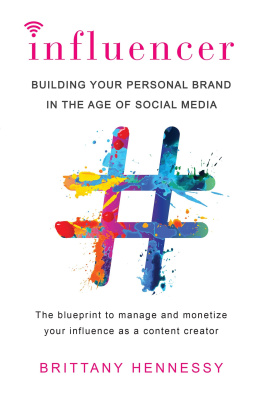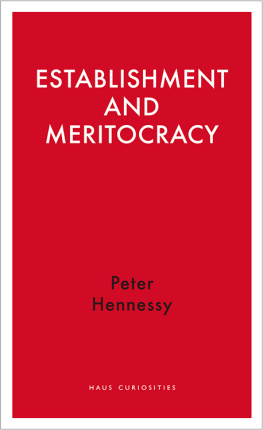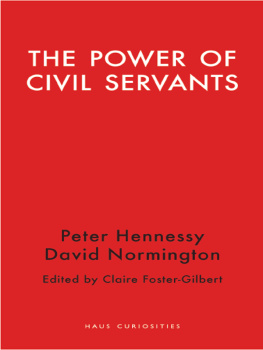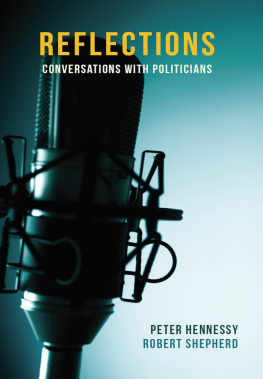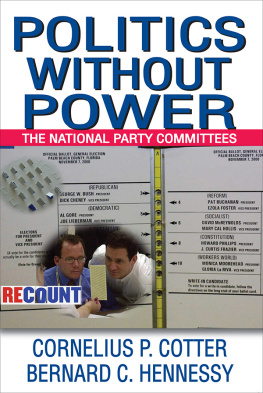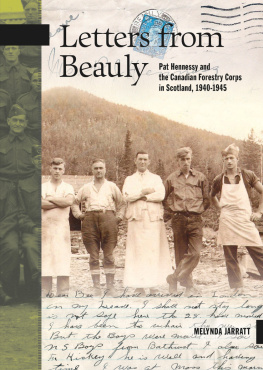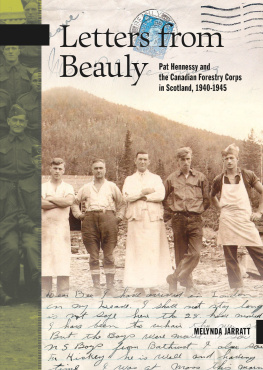Hennessy - Leading Matters
Here you can read online Hennessy - Leading Matters full text of the book (entire story) in english for free. Download pdf and epub, get meaning, cover and reviews about this ebook. year: 2018, publisher: Stanford University Press, genre: Politics. Description of the work, (preface) as well as reviews are available. Best literature library LitArk.com created for fans of good reading and offers a wide selection of genres:
Romance novel
Science fiction
Adventure
Detective
Science
History
Home and family
Prose
Art
Politics
Computer
Non-fiction
Religion
Business
Children
Humor
Choose a favorite category and find really read worthwhile books. Enjoy immersion in the world of imagination, feel the emotions of the characters or learn something new for yourself, make an fascinating discovery.

Leading Matters: summary, description and annotation
We offer to read an annotation, description, summary or preface (depends on what the author of the book "Leading Matters" wrote himself). If you haven't found the necessary information about the book — write in the comments, we will try to find it.
Leading Matters — read online for free the complete book (whole text) full work
Below is the text of the book, divided by pages. System saving the place of the last page read, allows you to conveniently read the book "Leading Matters" online for free, without having to search again every time where you left off. Put a bookmark, and you can go to the page where you finished reading at any time.
Font size:
Interval:
Bookmark:
John L. Hennessy
LEADING MATTERS
Lessons from My Journey
STANFORD BUSINESS BOOKS
AN IMPRINT OF STANFORD UNIVERSITY PRESS
STANFORD, CALIFORNIA
Stanford University Press
Stanford, California
2018 by John L. Hennessy. All rights reserved.
No part of this book may be reproduced or transmitted in any form or by any means, electronic or mechanical, including photocopying and recording, or in any information storage or retrieval system without the prior written permission of Stanford University Press.
Special discounts for bulk quantities of Stanford Business Books are available to corporations, professional associations, and other organizations. For details and discount information, contact the special sales department of Stanford University Press. Tel: (650) 725-0820, Fax: (650) 725-3457
Printed in the United States of America on acid-free, archival-quality paper
Library of Congress Cataloging-in-Publication Data
Names: Hennessy, John L., author.
Title: Leading matters : lessons from my journey / John L. Hennessy.
Description: Stanford, California : Stanford Business Books, an imprint of Stanford University Press, 2018. | Includes bibliographical references and index.
Identifiers: LCCN 2018009505 | ISBN 9781503608016 (cloth : alk. paper) | ISBN 9781503608023 (epub)
Subjects: LCSH: LeadershipUnited States. | Hennessy, John L. | College administratorsUnited StatesBiography. | BusinessmenUnited StatesBiography. | Stanford UniversityBiography.
Classification: LCC HD57.7 .H4457 2018 | DDC 658.4/092dc23
LC record available at https://lccn.loc.gov/2018009505
Cover design by Rob Ehle
Text design by Bruce Lundquist
Typeset at Stanford University Press in 11.5/16 Baskerville
To Andrea, my life partner for the past forty-eight years and my companion on these journeys
CONTENTS
by Walter Isaacson
FOREWORD
Walter Isaacson
The biggest regret you will feel when finishing this book is that you didnt read it earlier. All of us who have struggled to be good leaders would have found our way more easily if our paths had been lit by this wonderful guide.
John Hennessy has been one of the most creative leaders of our time, combining intellect with wisdom. As Stanford Universitys president, he was a great manager and executive as well as a visionary. In addition, he has mentored and molded scores of other great leaders. So he has a deep understanding of the components of leadership.
There is no one formula for being a great leader. Take Americas founders, for example. Some were men of great intellectual vision, such as Jefferson and Madison. Others had great passion, like John Adams and his cousin Samuel. Washingtons foremost traits were his rectitude, gravitas, and commanding presence. And then there were leaders like Benjamin Franklin, whose sage manner and humor could bring strong personalities together and get them to collaborate and compromise.
Through his own experience and from watching others, Hennessy draws lessons from various leadership styles and is able to distill ten core concepts. They are presented in this book not simply as abstract principles but with insightful stories and memorable anecdotes that bring them to life.
He begins with humility, which is fitting because that is a quality that is most evident and surprising in himself. Both in person and in this book, Hennessy exudes the strength that comes from confidence but also the openness that comes with the true humility of wanting to appreciate the opinions of others.
We often think great leaders need to be driven by unwavering conviction and willing to ignore second-guessers. We think they need to have a healthy ego. In fact, however, the worst combination for a leader is to combine ego and insecurity, as happens too often, especially in politics. Both in this book and in his life, Hennessy shows how the recipe for great leadership is the opposite: being secure yet humble.
Two of the people I have written aboutAlbert Einstein and Steve Jobswere not known for being humble. But in fact they each had a deep inner humility. For Einstein, it stemmed from the awe he felt for the beauty of natures laws. When a sixth-grade girl from New York wrote to ask about his religious feelings, he replied, There is a spirit manifest in the laws of the universea spirit vastly superior to that of humankindin the face of which we must feel very humble. For Jobs, who was deeply spiritual, his Buddhist training did not rid him of his surface brashness and occasional aggressiveness, but he listened intently and fully processed the opinions of others.
Benjamin Franklin once said that he was never able to master the virtue of humility, but he learned the pretense of humilityhe knew that feigning it was useful in dealing with others. That would seem to defy Hennessys second principle of leadership, which is to be authentic. Franklin, however, goes on to teach us, as does Shakespeares Prince Hal, that we become the mask we wear. In other words, when we have difficulty in mastering a virtue, it sometimes helps to display it nonetheless, and over time we will be able to internalize it. I personally found that true for another of Hennessys leadership skills, courage. As a leader of journalistic enterprises, I was often afraid to take risks, but by putting on a front of fearlessness at important moments I learned how to be actually more courageous.
Humility forms the foundation for many of the other principles that Hennessy describes, such as empathy and regarding leadership as service. It is especially relevant for one of the key concepts in this book, which is the importance of collaboration. As Franklin explained in his autobiography, displaying and then learning humility caused him to listen to other people, help them find common ground, and get them to work together. The four seminal innovations of the digital agethe transistor, computer, microchip, and packet-switched networkwere all developed by collaborative teams rather than singular inventors. When I asked Steve Jobs what his greatest product was, he did not say the Macintosh or the iPhone, but instead simply said, the team at Apple.
Hennessy also explores the virtue of curiosity, which is a trait that was exemplified by my latest biographys subject, Leonardo da Vinci. Da Vinci had an insatiable drive to learn everything possible about everything that was knowable. With a passion both playful and obsessive, he pursued studies of anatomy, fossils, art, architecture, music, birds, the heart, flying machines, optics, botany, geology, water flows, and weaponry. It allowed him to fathom how the infinite works of nature, as he put it, are woven together in a unity filled with marvelous patterns. His ability to combine art and science, made iconic by his drawing of a perfectly proportioned man spread-eagled inside a circle and square, known as Vitruvian Man, made him historys most creative genius. That trait of wide-ranging curiosity is one that distinguishes the truly creative leaders of our time as well, including Steve Jobs, Bill Gates, Jeff Bezos, and John Hennessy.
There is one leadership skill in this book that I found a bit unexpected but also profound: storytelling. One of my early mentors, the novelist Walker Percy, told me when I left our home state to become a journalist in New York, There are two types of people who come out of Louisiana, preachers and storytellers. Be a storyteller, because the world already has too many preachers. That is the joy of Hennessys book. It is filled with lessons, but he conveys them through stories. He understands that leadership is about creating a narrative. If you know how to tell the stories, you will be able to shape the narrative.
Next pageFont size:
Interval:
Bookmark:
Similar books «Leading Matters»
Look at similar books to Leading Matters. We have selected literature similar in name and meaning in the hope of providing readers with more options to find new, interesting, not yet read works.
Discussion, reviews of the book Leading Matters and just readers' own opinions. Leave your comments, write what you think about the work, its meaning or the main characters. Specify what exactly you liked and what you didn't like, and why you think so.



